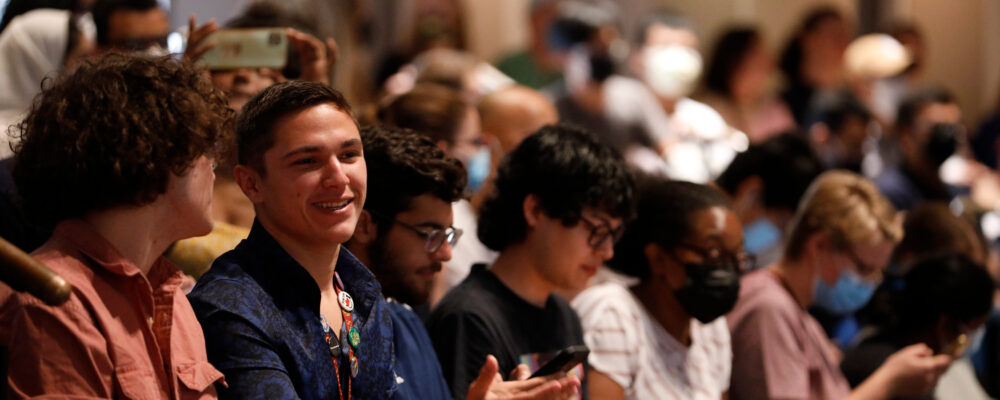Support and Resources (DRAFT)

Graduate school can be a deeply fulfilling and rewarding journey, but it often comes with challenges. Reaching out for support can make a meaningful difference. While your existing support network—such as friends, family, or mentors—is important, Cornell offers several dedicated resources to guide and support you.
🚨 In a Crisis?
- Call Cornell Health, available 24/7: 607‑255‑5155. Identify the situation as an emergency—they’re equipped to help immediately.
- Walk-in mental health support is available during business hours at Cornell Health, located at 110 Ho Plaza.
- For security or personal safety concerns, contact Cornell University Police: 607‑255‑1111.
Contacts for Non-emergency Situations
| Role | When to Reach Out |
|---|---|
| Director of Graduate Studies (DGS) | Academic questions, program requirements, and conflict resolution |
| Graduate Field Administrator (GFA) | Administrative help, field procedures, enrollment issues |
| Graduate School Student Services | Registration, leaves, exams, petitions, funding, thesis/dissertation support |
| Graduate School Office of Student Life Staff | Academic, personal, procedural, wellness, curriculum navigation, DEI, conflict resolution |
| Graduate School Office of Inclusion and Student Engagement staff | Diversity, bias experiences, bias reporting, professional/community development |
| CAPS (Counseling & Psychological Services) | Confidential, no appointment, informal consultations available via Let’s Talk |
Your Director of Graduate Studies (DGS)
- Academic help, including information about academic requirements, expectations, and resources for support
- Guidance on handling dispute resolution
Your Graduate Field Administrator (GFA)
- Administrative help
- Procedures and resources
Graduate School Office of Student Life Staff
Staff members in the Graduate School Office of Student Life meet with students on a range of topics to brainstorm options, offer support, and share information or referrals. They take a holistic, student-centered approach to support the unique needs of each graduate student, offering dynamic advising through partnership, collaborative problem-solving, and empowerment.
Janna Lamey, associate dean
- 607-255-5184, Janna.Lamey@cornell.edu
Olivia Hopewell, graduate student life advisor
- 607-255-3935, ho256@cornell.edu
Students meet with Graduate Student Life staff about:
Academics
- Navigating academic relationships and difficulty in making academic progress
- Consider alternatives in your academic program (i.e. switching programs, changing career path, leaving Cornell)
Health and Wellness
- Explore options for when health concerns are impacting academic progress
- Understand sources of support when not able to focus or concentrate or loss of motivation in research/scholarship
Policies and Procedures
- Explore options in handling difficult problems or situations
- Understand university policies and procedures better as it relates to your concern
Personal Concerns
- Address personal or family emergencies, such as injury, accident, or death
- Navigate challenging personal life situations (i.e. roommates, partner/children, visa concerns, financial, etc.)
- Discuss options when you have been treated unfairly, insensitively, or irresponsibly
What you can expect from meeting with Graduate Student Life staff
- Confidentiality*
- Non-judgmental place to listen effectively to your experience
- Brainstorm possible solutions and evaluate alternative plans for resolution
- Assistance (that you want!) to help navigate your program
- Resources and services for academic and personal support
- Referrals to other services and personnel (may include other Graduate School deans)
- Support you as a whole person; reaffirm the value of self-care and being resilient
*Meetings can be confidential, except in cases where university policy or federal law obligates staff to report or address, such as situations of harm to self or others, along with situations of sexual misconduct or violence. In these situations, other campus offices (outside your program) will need to be brought into the conversation, and you will be informed of this along the way.
Graduate School Office of Inclusion and Student Engagement (OISE) Staff
Contact OISE staff to discuss issues related to diversity and inclusion; leadership and professional development; community and alumni engagement; and incidents of bias.
Sara Xayarath Hernández, Associate Dean
Students meet with Office of Inclusion and Student Engagement staff about:
Climate, opportunities, programs, opportunities, etc.
- Student experiences of the climate of Cornell and opportunities to further enhance the climate for graduate students
- Opportunities to collaborate with the Graduate School and graduate student organizations on initiatives focused on community engagement, diversity, and inclusion
- Programs and resources available to support the professional and leadership development of graduate students
- Opportunities to engage with alumni through professional development based programs
- Options for reporting and dealing with experiences related to bias and discrimination
Graduate School Student Services
Contact Student Services for general inquiries about registration, enrollment, funding, leaves, exams, petitions, thesis and dissertation submission, degree completion, or other student requirements.
Cornell Health Counseling and Psychological Services (CAPS)
Call CAPS to speak to Cornell Health staff members confidentially about academic, emotional, or social concerns. It is a sign of intelligence and strength to recognize when you need help.
- 607-255-5155 (available 24 hours a day, seven days a week)
Other Resources
Let’s Talk
CAPS supports the Let’s Talk program, which provides confidential consultations with counselors. These are free and confidential, and no appointment is necessary.
Mental Health While Away from Campus
The Graduate School provides a set of frequently asked questions about mental health services and support for students who leave the Ithaca area.
Mental Health Resources
The Mental Health at Cornell website is dedicated to providing support and resources to meet the emotional, physical, social, and spiritual needs of the university community.
Other Confidential Resources
Other resources available to students include Cornell Health, Cornell United Religious Work Chaplains, the Cornell Victim Advocate, the Gender Equity Resource Center, the LGBT Resource Center, and the University Ombuds.
